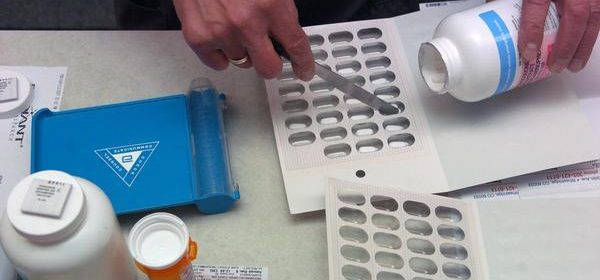Colorado hopes to save millions in employee drug costs with reverse auction

Colorado leaders are hoping to save millions of dollars through the state employee health plan by changing how prescription drugs are managed — with the option for nonprofit organizations and businesses to join in later if it works out.
House Bill 1237 requires the Colorado Department of Personnel and Administration to conduct a “reverse auction” for handling the state employee health plan’s pharmacy benefits. Colorado will be the fourth state to require pharmacy benefit managers who want the contract for state employees to compete to offer the lowest costs on prescription drugs.
If other insurance plans like what they see, they could join the state’s pharmacy benefit manager contract when it comes up for bidding again in a few years.
Colorado officials have not yet announced how much they expect to save through the process, but some of the other states that have adopted reverse auctions saved hundreds of millions of dollars over a period of years — sums that can depend on how costly those states’ previous prescription-drug deals were.
Skip Miller, a state employee and president of the Colorado WINS union, said he’s heard estimates that the reverse auction could save $6 million to $10 million per year, money that would be available for raises or other state priorities.
“Having this come out as a way to not only contain costs, but reduce costs, that’s a win not only for employees but for the state,” he said.
Pharmacy benefit managers are essentially middlemen who decide which drugs will be easiest to access and how much employees pay for them. The idea is that they’ll negotiate the best prices with pharmaceutical companies, because they serve many employers and have more leverage than any individual business or public employer.
In practice, it’s not always clear if employers are getting a good deal. In a typical process, each pharmacy benefit manager offers its own plan, which is difficult or impossible to directly compare to others, said Mark Blum, executive director of America’s Agenda, a coalition of employers and unions that’s advised states on reverse auctions. And incentives can be somewhat perverse in the prescription drug world, because pharmacy benefit managers can collect more from rebates and fees if customers are using more expensive medications.
“You’re getting different pricing, different contract terms, different formularies,” which are the framework to steering employees toward certain drugs and away from others, he said.
In a reverse auction, a state builds a general plan it wants the pharmacy benefit manager to enact. Colorado doesn’t have to make decisions about every drug that employees might need, but can set provisions to rein in spending on the biggest items, Blum said. For example, that might include requiring the pharmacy benefit manager to set incentives that encourage using cheaper forms of insulin, or limiting the circumstances where they can dictate which pharmacy must fill a prescription, he said.
Once a state has its plan in place, it can hold multiple rounds of bidding over several weeks, Blum said. The pharmacy benefit managers don’t submit a single number as a bid, but offer their own plans laying out prices and incentives for the full range of drugs.
That’s more than a human could reasonably process, so a computer takes the submitted plans and runs a simulation, giving the state an idea of what it would pay under that plan. The pharmacy benefit managers then have the opportunity to tweak their plans and improve their bids, he said.
“The hypothesis is that (pharmacy benefit managers) would be more successful undercutting each other” than states are in negotiating, he said.
The computer program operates based on the assumption that employees’ medication use is relatively constant, which is usually correct when the group is large enough, Blum said. It also includes assumptions about how much drug costs will rise, so it’s possible the ultimate amount the state pays will be different. But it was very close on the ultimate costs for New Jersey, which held its first reverse auction in 2017 and another in 2019, he said.
New Jersey has been the most successful state with reverse auctions, saving about $2.5 billion over five years, Blum said. Minnesota conducted its first auction this summer, and estimates it will save about $130 million over two years, or roughly 27% of what it spends on employees’ prescription drugs.
Others haven’t been so successful. New Hampshire held a reverse auction, but the process was contentious and it never released the results, Blum said. Maryland passed a law requiring a reverse auction before Colorado did, but it’s blown through deadlines and there’s no sense of when bidding might happen, he said.
Doug Platt, spokesman for the Colorado Department of Personnel and Administration, said it was too early to comment on the reverse auction. The law requires the department to contract with a pharmacy benefit manager by July 1, but first it needs to define the plan for bidding and set up the process, he said.
Miller said the union hasn’t yet been invited to participate in the process, but he hopes it will be asked. The results were better in states where all stakeholders were involved than in those like New Hampshire, where the “black box” process led to distrust, he said.
“If we do this right, there’s a lot to gain,” he said.
Subscribe to bi-weekly newsletter to get health news sent straight to your inbox.
Source: Read Full Article